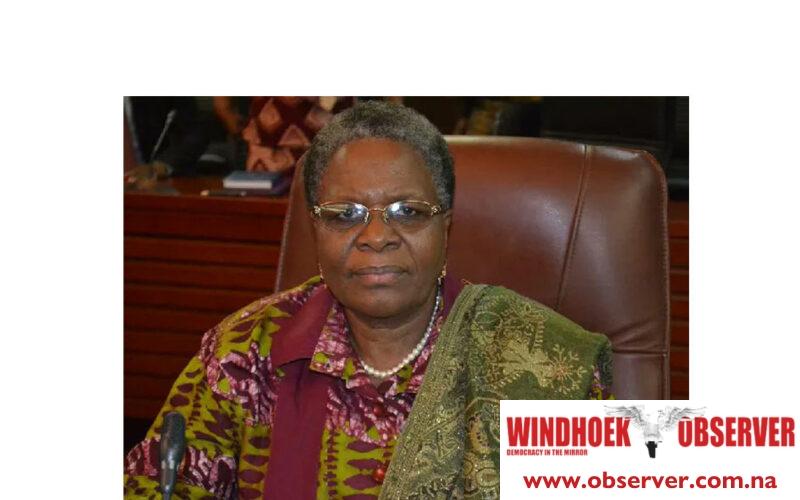Niël Terlanché
Failure to invest in the United Nations Sustainable Development Goals (SDGs) is threatening the economies of developing countries and exacerbating global inequality.
Speaking at the opening of the Third South Summit of the G77 + China in Uganda, Namibia’s Minister of International Relations and Cooperation, and Deputy Prime Minister, Netumbo Nandi-Ndaitwah, stressed the urgent need to alleviate extreme poverty.
The G77 + China summit, representing a coalition of 134 member countries including China, serves as a vital platform for developing countries to unify their views on global issues.
The summit’s theme, “Leaving No One Behind,” aligns with the imperative of ending extreme poverty, reducing inequalities, and addressing vulnerabilities, Nande-Ndaitwah noted.
According to the “United Nations Sustainable Development Goals Report 2023: Special Edition titled ‘Towards a Rescue Plan for People and Planet,’” more than half of the world’s population is lagging in achieving these goals.
With over half of the SDG targets showing little or no progress and 30% either stalled or reversed, developing nations feel the brunt of this failure. This neglect is driving people deeper into poverty, disproportionately affecting women, youth, and children, Nandi-Ndaitwah said.
In this significant 60th Anniversary Year of the G77 + China’s establishment, Namibia stressed the importance of unity and commitment to the group’s principles, crucial for addressing global issues in the spirit of multilateralism.
According to Nandi-Ndaitwah, the summit’s outcomes should be forward-looking and action-oriented, preparing us for the mounting challenges of the modern world.
Nandi-Ndaitwah also highlighted the upcoming Summit of the Future in New York in September, co-chaired by Namibia and Germany, as a pivotal event.
“It will remind us of the need to fulfil our current international development obligations, particularly the 2030 Agenda for Sustainable Development,” she said.
Addressing Namibia’s classification as an “upper middle-income country,” Nandi-Ndaitwah pointed out the challenges it poses in mobilizing resources for development goals and addressing historical injustices.
“We are not asking for free money, but for justice that allows access to affordable finance,” she stated while stressing the need for reform in the international financial architecture to bridge the gap between developed and developing countries.
She added that Namibia stands in solidarity with oppressed peoples worldwide, especially those affected by armed conflict and violence and stressed the importance of ensuring human rights for all.
“This includes welcoming the International Court of Justice’s consideration of Israel’s occupation of Palestine, a matter Namibia and other UN Member States support,” she said.
According to Nandi-Ndaitwah, the lack of progress in liberating the Sahrawi people is particularly troubling, and she urged the international community to act against perpetuating the status quo.
“We are committed to implementing UN Agenda 2030 and the AU Agenda 2063, Namibia integrated these frameworks into its national development plans,” she said.
Nandi-Ndaitwah added that the effective implementation of the African Continental Free Trade Area (AfCFTA) is seen as key to achieving an integrated and unified Africa.
“Through North-South and Triangular Cooperation, Namibia is developing clean energy production, including the green hydrogen industry,” she said.
This industry will contribute to clean energy for sustainable development while reducing greenhouse gas emissions as part of the broader decarbonization objective.
“Namibia is also responsibly pursuing newly discovered oil reserves, leveraging technological advancements,” she added.
Nandi-Ndaitwah added that Namibia welcomes the establishment and full operationalization of the Fund on Loss and Damage taken at COP27 and COP28. As the climate crisis continues, Namibia calls for increased commitment to addressing this critical issue, with Azerbaijan set to host COP29 this year.
Nande-Ndaitwah urged the members of the G77 + China to strengthen principles of unity, solidarity, and cooperation, ensuring efficient, effective, and transparent collective efforts so that no one is left behind.




